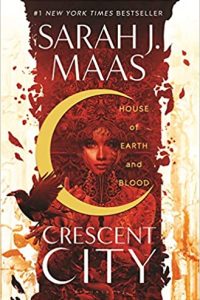Paul Di Filippo Reviews Hench by Natalie Zina Walschots
 Hench, Natalie Zina Walschots (William Morrow 978-0062978578, 416pp, $27.99, hardcover) September 2020.
Hench, Natalie Zina Walschots (William Morrow 978-0062978578, 416pp, $27.99, hardcover) September 2020.
Have we reached Peak Deconstruction of Superheroes yet? One could reasonably argue that the trend harks back at least as far as Mad magazine’s “Superduperman” and “Batboy and Rubin” parodies from 1953. Marvel and DC both poked fun at the conventions of the genre during the Sixties, with titles like The Inferior Five and Not Brand Echh. Grant Morrison and Rachel Pollack cunningly detourned The Doom Patrol. Much more recently, Brian Bendis’s Powers series, Garth Ennis’s The Boys, Kurt Busiek’s Astro City, Robert Kirkman’s Invincible, and Gerard Way’s The Umbrella Academy have all dissected and re-Frankensteined the familiar crime-fighters, villains, and civilians of the four-color mythos. We won’t even mention the name of Alan Moore (Watchmen, Supreme, and Miracleman), nor the work done in the cinema by enterprises like Mystery Men (1999) and The Incredibles (2004).
As for non-pictorial prose attempts to unpack the conventions and tropes of the men and women in tights and capes, the Science Fiction Encyclopedia reminds us in its comprehensive entry on “Superheroes,” “Robert Mayer’s Superfolks (1977) is an early satire on the superhero theme.” Since then, there have been numerous novels devoted to the theme, two of the most recent being from Bob Proehl.
So I suspect that at this point there remains very little subtextual material in the superhero genre whose disclosure can shock or provoke or enlighten us as to the “true meaning” of wearing your underwear on the outside of your work clothes. Nonetheless, this does not mean that entertaining stories in this mode cannot still be written. After all, the concept of a galactic empire is hardly a novelty, and yet beautiful and impactful space operas like The Vanished Birds continue to appear.
And so it is with Natalie Zina Walschots’s debut novel, Hench. It is a clever, witty, vigorous, and well-crafted adventure in this mode of superhero revisionism, by turns hilarious and tragic, alternately rudely juvenile or sophisticated. It has some refreshing twists, and goes down smoother than a draft of Ralph Dibny’s Gingold, conferring similar stretching powers to the reader’s mind. But it is not as revolutionary or daring as it might imagine itself to be, trekking as it does through familiar territory on the heels of such illustrious predecessors.
The book basically breaks down into three parts, two smaller sections bracketing the large middle.
First we meet Anna Tromedlov, a young single woman struggling to get by via work from a certain Temp Agency. This organization hires out Henches, minions for evildoers. Many of the Henches are superpowered or otherwise specially talented. But Anna is just a normal human drudge, offering, say, data-entry skills that every bad guy organization needs. Her best friend from childhood, June, has super sensory acuity, but finds herself taking similar drone-like positions. It’s a living.
Anna takes an assignment to work for a C-list villain named the Eel. But one of the Eel’s schemes, in which she is a simple bystander, goes pear-shaped, and Anna finds herself incidentally buffeted about by the world’s number one hero, Supercollider. After she gets out of the hospital, broken and angry, she begins tabulating the collateral damage produced by the heroes, and soon makes a small internet reputation for herself. (This book is very au courant and savvy about social media, mass media, and internet memes, etc.) This leads to a job offer from the world’s number one bad guy, Leviathan.
Here begins part two. With Leviathan’s vast resources at her disposal, Anna—now operating under the cognomen of “the Auditor”—begins a campaign of doxxing, swatting, pranking, trolling, and general misinformation intended to bring down every conceited, self-assured, righteous hero, up to and including Supercollider. All goes in her favor—not without close calls, moral and ethical doubts, and interpersonal strife—up until the moment that Leviathan decides to step out into the open and got toe-to-toe with a hopefully diminished Supercollider. The aftermath of their titanic battle forms the third part of the book, wherein Anna must rise to the dire occasion and discover new traits and abilities within herself.
Walschots’s accomplishments in this novel are several and impressive.
First comes Anna’s character and voice. As narrator, she is onscreen every moment, but never becomes predictable or boring. She exhibits a mix of self-knowledge and delusions that make her utterly human and relatable. She does not admire herself particularly, is self-deprecating, but does what she feels compelled to do by her vision of reality and justice, even if it means losing friends and making immense personal sacrifices. Also, the understated quasi-romance between her and Leviathan is played just right.
Second, we have all the superhero riffs nailed down tight. Walschots plainly knows her comics inside and out. She creates many analogues with famous icons. Supercollider is obviously Superman, while Leviathan might be a blend of Doctor Doom and Watchmen’s Ozymandias and Doctor Manhattan. Supercollider’s mate, Quantum Entanglement, harks to the Invisible Woman. And so forth, with some unique instances—the Tardigrade, anyone? Likewise, Walschots is an expert at staging battles and tweaking out all the other physical minutia of superhero actions and power.
Supercollider leapt up and aimed punch downward, leaving a small crater where Leviathan had been an achingly close instant before. He’d moved with preternatural speed at an odd, skittering angle, taking a swipe at Supercollider with the blades attached to his gauntlets. Supercollider snarled and grabbed hold of the slip car; I screamed as he threw the odd, squat vehicle at Leviathan, who successfully dodged again. The car hit one of the foam artillery cannons, which exploded like a giant can of shaving cream left on a radiator. Several of the Meat standing too close were immediately engulfed; I could hear their muffled screams. The rest scattered…. Leviathan moved like nothing I had ever seen before. He bent in ways I did not expect, and his reflexes were uncanny. One moment he seemed to be a creature made of blades, then he was harder to hold than smoke. I was enraptured.
The dialogue always has a 21st-century snarky hipness to it, conferring a sense of black humor to all the actions. This is of course fully in line with the traditional comic book quipping and banter.
One aspect of Anna’s campaign which I found faintly unbelievable was the notion that by scattering quotidian impediments in the paths of the superheroes—”ruin their dry cleaning and dinners,” as she says—she could unnerve them sufficiently to throw them off their game. Hasn’t this been the precise arc of every Spider-Man story ever written, with the justified conclusion that no matter how often Aunt May gets sick or the Bugle stiffs him for photos, Peter Parker will bounce back and persevere? Maybe Walschots is trying to show us that the Spider-Man myth is false, but if her universe exemplifies all the other tropes of superhero-dom, shouldn’t this path also be already disproven?
In any case, Anna’s Machiavellian tactics succeed, with very laudable and engaging results both for herself and for her readers, who get to relish another stimulating, rollercoaster plunge into the dynamics of costumed champions versus evildoers, this time from the underbelly up.
 While you are here, please take a moment to support Locus with a one-time or recurring donation. We rely on reader donations to keep the magazine and site going, and would like to keep the site paywall free, but WE NEED YOUR FINANCIAL SUPPORT to continue quality coverage of the science fiction and fantasy field.
While you are here, please take a moment to support Locus with a one-time or recurring donation. We rely on reader donations to keep the magazine and site going, and would like to keep the site paywall free, but WE NEED YOUR FINANCIAL SUPPORT to continue quality coverage of the science fiction and fantasy field.
©Locus Magazine. Copyrighted material may not be republished without permission of LSFF.





